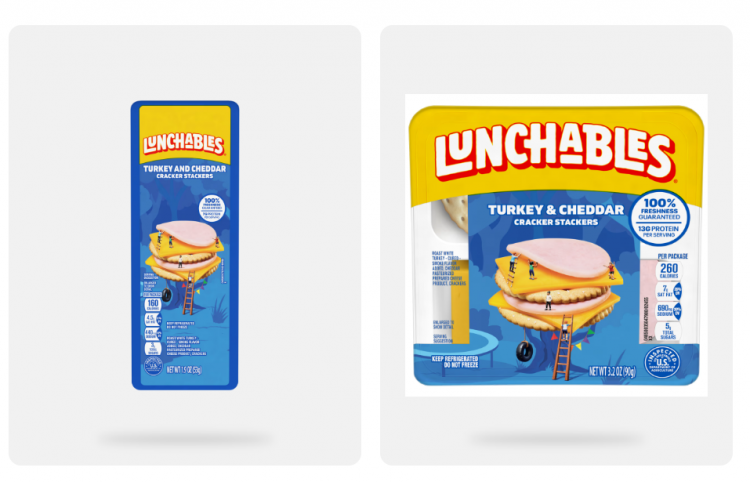Consumer Reports, a nonprofit organization known for its independent product testing, has raised concerns about the presence of lead, cadmium, and high sodium levels in Lunchables and similar lunch kits. The group tested 12 store-bought versions of these products and found that all of them contained either lead or cadmium, or both toxic heavy metals.
According to the report, three types of Lunchables sold in stores - turkey and cheddar with crackers, pepperoni pizza, and cheese pizza - contained lead. While none of the tested products exceeded legal or regulatory limits, five of the 12 lunch kits would expose a person to 50% or more of California's maximum allowable level for lead or cadmium, currently the strictest standard in the absence of federal limits for heavy metals in most foods.
"Lead and cadmium can cause developmental problems in children over time, even in small amounts," Consumer Reports stated. The group also flagged all lunch kits for their salt content, which ranged from almost a quarter to half of the daily recommended limit for children.
In response to the findings, Kraft Heinz, the manufacturer of Lunchables, called the results "misleading" and stated that they were causing "undue concern over the safety of our products." The company emphasized that all Lunchables products meet strict safety standards set by government agencies and that the metals in question are naturally occurring, with low levels potentially present in any food product.
Dr. Carl Baum, a medical toxicologist for Yale Medicine and director of the Lead Poisoning and Regional Treatment Center in Connecticut, expressed concern about lead levels in food, particularly for children. "Children are in a very vulnerable developmental stage, as their brains are still forming," he explained. "We don't want anything interfering with that process, and lead and cadmium, as well as other heavy metals, do interfere with that."
Long-term exposure to lead can lead to neurodevelopmental problems, behavioral issues, slow growth, and problems with learning and development in children, according to experts. Dr. Sara Scherger, a pediatrician at the Mayo Health Clinic in Austin, Minn., added that high levels of lead can also cause kidney damage, nervous system damage, seizures, lethargy, abdominal pain, constipation, and vomiting.
In addition to the heavy metal concerns, Consumer Reports also launched a petition asking the U.S. Department of Agriculture (USDA) to remove Lunchables from the National School Lunch Program due to their sodium content. The group did not test the Lunchables distributed in schools, which have a slightly different recipe than those available in stores.
Kraft Heinz defended the Lunchables served in schools, stating that they adhere to all USDA standards and have a specialized recipe that incorporates more protein and whole grains while reducing saturated fat and sodium. The company added that offering Lunchables in schools helps meet schools' needs by providing affordable, convenient solutions that offer students quality nutrition at lunchtime.
The USDA, in response to the petition, stated that it takes its responsibility to ensure school meals are of the highest nutritional quality very seriously. The agency noted that it doesn't allow or disallow individual food items but focuses on the overall content of meals, and that Lunchables would need to be paired with fruit, vegetables, and milk to meet the program's requirements.






